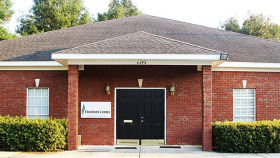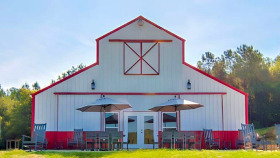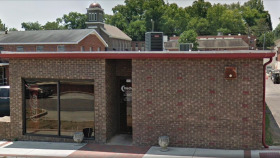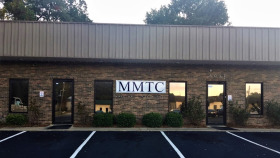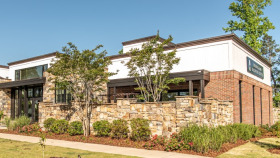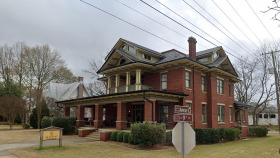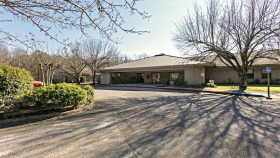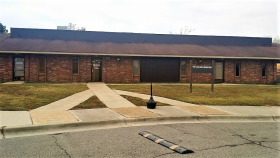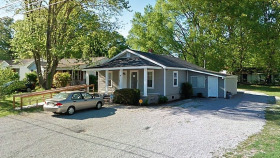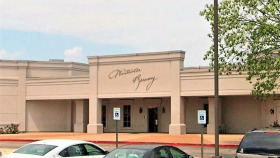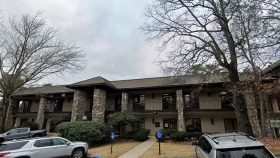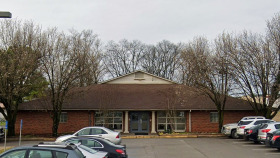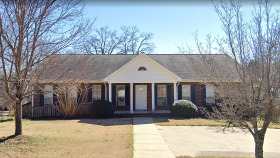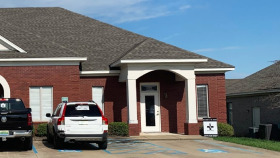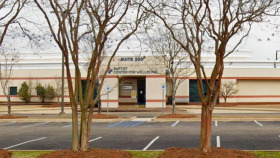Expert Insights
Instead of focusing on soaring fentanyl overdoses and deaths in Alabama, a 17-member committee of medical professionals recently chose to enact more regulations on clinics prescribing buprenorphine as part of a medication-assisted treatment (MAT) program. Buprenorphine is a mild opioid that blocks cravings without the euphoric high produced by methadone. (It’s worth mentioning that the committee mysteriously chose to target buprenorphine clinics, while state methadone clinics are not impacted by the proposed regulations.) One new guideline requires clients to visit a provider’s office every two weeks instead of monthly. Taking time off work for a monthly doctor’s visit is already difficult for some people, but adding an additional visit per month is a burden that many in rural areas of Alabama cannot bear. Rural clients often have to drive more than two hours to the nearest buprenorphine provider. Being from the South, it’s maddening that we have the highest rates of opioid abuse, the lowest number of treatment providers, and an overpopulation of officials bent on making it even harder to access recovery.
~ Nikki Seay
How Much Does Drug Rehab Cost in Alabama?
Alabama is ranked 40th nationwide in terms of addiction treatment affordability, with an average cost of drug and alcohol rehab of $58,607 (without insurance).
- Medical detox is the most expensive, with an average cost of $144,488
- Long-term inpatient drug rehab in Alabama costs an average of $51,717
- Outpatient addiction treatment in Alabama costs an average of $8,593
- Outpatient methadone treatment is the most affordable, with an average cost of $7,635
The cost of alcohol and drug rehab in Alabama varies from facility to facility based on several factors. Some of the many variables that will help determine your treatment costs include:
Whether you need inpatient or outpatient treatment
The type of facility you select (luxury vs. standard)
The length of time you spend in treatment
Whether you have health insurance and what your plan covers
Whether you qualify for reduced-cost or free care at a government-funded or non-profit center
If the potential cost of care feels somewhat overwhelming, know that most facilities and detox centers have several payment options to help you access care. Some addiction treatment centers offer financial assistance or income-based services, and most accept public or private insurance to reduce costs.
Paying For Addiction Treatment in Alabama
It may be challenging to pay for addiction treatment in Alabama. Treatment is expensive, but far less expensive than addiction when you include the cost of the drugs, damaged relationships, unemployment, and possible jail time. Consider the following options to help cover treatment costs that can improve your quality of life.
Private Pay + Insurance
You may have commercial health Insurance from an employer or through the Health Insurance Marketplace. Two federal laws regulate health onsurance providers, mandating coverage for essential health services, including mental health and substance, use treatment. However, there are exceptions to insurance policies. This means it is necessary to verify your insurance coverage before getting treatment.
Health insurance policies in the marketplace must comply with coverage for treatment for mental health conditions and substance use disorders. Some people who have private insurance choose self pay or private pay. This reduces the potential their employer will learn of their drug or alcohol rehab treatment. Following are some of the major health insurance providers in Alabama.
- Blue Cross and Blue Shield of Alabama
- Celtic Insurance Company
- UnitedHealthcare
Medicaid
Medicaid is state and federally funded health coverage for people who meet the criteria, which include U.S. citizenship or qualified immigrant status, a current Social Security number, resident of Alabama and specific income levels. Alabama is one of 10 states that does not participate in expanded Medicaid income qualifications.
This means you must meet stricter eligibility qualifications to receive Medicaid benefits. Medicaid Covers mental health, substance abuse and addiction treatment. In Alabama, more than 1 million people receive Medicaid benefits, which is administered by Alabama Medicaid Agency, which has celebrated the 50th anniversary of offering covered benefits to state residents.
Medicare
Medicare is health coverage funded by the federal government primarily for individuals who are 65 years and older. There are two parts to Original Medicare. Medicare Part A covers inpatient care and Medicare Part B covers outpatient care, including treatment for mental health conditions and substance use disorders.
In Alabama, more than 1 million people who are enrolled in Medicare and 57% of those have a Medicare Advantage Plan. Medicare Advantage is also called Medicare Part C. It is a premium based plan sold by commercial health insurance providers to coordinate care for Medicare Parts A and B, and sometimes offers more benefits. including behavioral health benefits to treat substance abuse and addiction.
Military Insurance
TRICARE is the military insurance provider that coordinates care from Military Health System. They provide VA health benefits that cover military health facilities, civilian health facilities and health care professionals. Their coverage extends to active duty and retired military personnel and their families, National Guard and Reserve members around the world. TRICARE organizes health care in three regions and two are in the United States. Alabama is managed by Humana Military in the East Region.
Military personnel also have access to VA health care at hospital facilities, many of which treat mental health conditions and addiction. There are four inpatient facilities in Birmingham, Montgomery, Tuscaloosa, and Tuskegee and two outpatient facilities in Dothan and Selma.
Tribal Funding and Programs
The Substance Abuse and Mental Health Services Administration offers tribal funding opportunities, that include help applying for grants. Tribal Opioid Response Grants address the opioid crisis through culturally competent and evidence based treatment programs.
There are 44 substance abuse treatment and prevention grants in Alabama. Nine of these are intended to address the needs of tribal communities. Grant money is available from the Alabama Department of Economic and Community Affairs to help people in the state prison program break away from drug addiction and violence.
Other Low-Cost Options
If you don’t qualify for commercial health insurance or health insurance through the military, there are still ways you can lower your expenses. The quickest way is to take out a personal loan. Bank loans offer the most confidentiality but loans from friends and family usually have a lower interest and better repayment terms.
In addition, local businesses in Alabama may have grants and scholarships to help pay addiction treatment costs. You may consider nonprofit faith based or community based organizations, which usually accept donations and can offer free treatment when they have scholarship funds available.
Free and Low Cost Addictions Resources in Alabama
As of 2024, there were over 160 drug rehab facilities across the state of Alabama. These facilities accept several payment methods. Of those treatment facilities, the following numbers reflect how many drug rehab centers offer free or reduced-cost addiction treatment:
Drug and alcohol rehab centers support your jouney to achieve sobriety. However, alcohol and drug rehab can be expensive and for some, it is out of reach. You can choose to get help at low cost and free rehabs in Alabama that make treatment more accessible. There are roughly 170 substance abuse centers that serves from 14,000 to 15,000 people every year.
Low cost and free rehabs in Alabama offer many of the same treatment options as luxury addiction treatment centers. This includes inpatient or residential care, outpatient care, detoxification, and aftercare programs to help support recovery. Treatment typically includes evidence-based therapies and some low-cost treatment centers also offer holistic therapies that address your mental, physical, and emotional health.
The differences between low cost and luxury drug rehab centers are often the environment and the amenities. For example, you might get exercise facilities, world class chefs and private rooms in a luxury treatment center but the most important thing is the quality of treatment you receive.
There are a few ways you can reduce your costs and make treatment more accessible. The following options may help.
Addiction Prevention Coalition
This nonprofit, Central Alabama, community resource is focused on eliminating addiction in Alabama. They provide in-school prevention programs and a collection of support services for students, families, parents, and communities.
Alabama Department of Mental Health Substance Use Treatment
The department regulates service delivery and contracts with community organizations to offer state funded outpatient and residential care based on income.
Recovery Organization of Support Specialists
They offer peer support to improve your emotional health and sense of belonging. The events have included recovery rallies and peer conferences and programs include recovery community centers, pardons and paroles project, hospital programs, and a Medicaid partnership.
Recovery Resource Center
This collaborative program helps simplify the substance abuse treatment process. They offer an assessment process, help you find addiction treatment and help with payment for services.
North AL Syringe Exchange Network
The North AL Harm Reduction program helps protect the health and free will of individuals and communities by bridging barriers to care and facilitating safety through education and outreach.
Alabama Drug Use Statistics
Noteworthy recent alcohol and drug use statistics in Alabama include:3
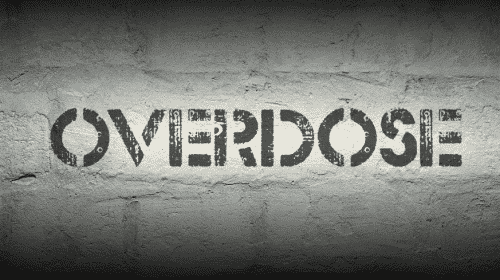
In 2020 alone, Alabama reported 1,029 drug-related overdose deaths. From May 2019 to May 2020, the state saw a 20% increase in opioid-related fatalities.

From 2019 to 2020, roughly 439,000 state residents reported using illicit drugs at least once within a 30-day period.
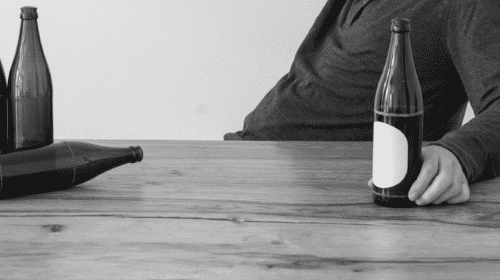
Between 2019 and 2020, approximately 849,000 residents reported engaging in binge drinking behavior at least once per month.
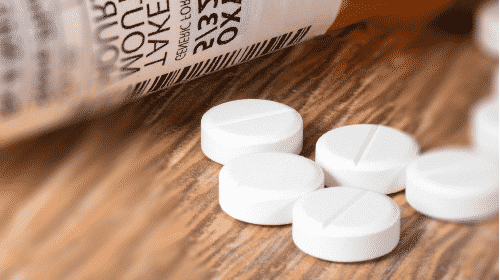
In 2020, roughly 14.2% of Alabama adults aged 12 and older were diagnosed with a substance use disorder involving illicit drugs, prescription drugs, or alcohol.
Drug Laws in Alabama
Narcan Nasal Spray Standing Order
The state has a standing order for Narcan 4 mg nasal spray to help reverse the effects of an opioid overdose. Narcan can be sold directly to consumers without a prescription. Some places you might find it include convenience stores, gas stations and drug stores.
Good Samaritan Law
This Alabama law protects citizens who are seeking emergency help when they or another is experiencing an opioid overdose from a criminal charge of having a controlled substance. This does not apply to people who possess the substance with the intent to sell.
Alabama Marijuana Law
Patients must be registered to have medical marijuana under state law. Medical marijuana is available to people with a terminal illness, post traumatic stress disorder, and chronic pain. No other persons can legally have marijuana. If convicted you could face a penalty of up to 10 years in jail and up to $15,000 in fines for a first offense.
Workplace Drug Testing Alabama Law
Alabama law lets employers develop a drug free workplace program that regulates drug testing. Employers must do drug tests under certain circumstances and must protect their employee’s and applicant’s rights. There must be a workplace program in place if employers want to require drug tests on applicants. More limited testing is allowed based on the job position.
Resources
- Centers for Disease Control and Prevention, National Center for Health Statistics. (2022). Drug Overdose Mortality by State.
- FindTreatment.gov. (n.d.). FindTreatment.gov.
- Alabama Department of Public Health. (2019 July). Overdose Surveillance Summary
- Substance Abuse and Mental Health Services Administration, Center for Behavioral Health Statistics and Quality. (2019, 2020). National Survey on Drug Use and Health
- Centers for Medicare & Medicaid Services. (n.d.). The Mental Health Parity and Addiction Equity Act (MHPAEA).
- Alabama Medicaid. (n.d.). Your Guide to Alabama Medicaid
- Alabama Medicaid. (n.d.). State of Alabama, 1905(a)(29) Medication-Assisted Treatment (MAT)
- U.S. Department of Health and Human Services, Centers for Medicare & Medicaid Services. (2020 March). Medicare & Your Mental Health Benefits
- McCarty, D., Braude, L., Lyman, D. R., Dougherty, R. H., Daniels, A. S., Ghose, S. S., & Delphin-Rittmon, M. E. (2014). Substance Abuse Intensive Outpatient Programs: Assessing the Evidence. Psychiatric services (Washington, D.C.), 65(6), 718-726.
- National Institute on Drug Abuse. (2019). Treatment Approaches for Drug Addiction DrugFacts.
- Substance Abuse and Mental Health Services Administration, Office of the Surgeon General. (2016). Facing Addiction in America: The Surgeon General’s Report on Alcohol, Drugs, and Health.
- Substance Abuse and Mental Health Services Administration. (2022). Medication-Assisted Treatment (MAT).
- Substance Abuse and Mental Health Services Administration. (2022). Methadone.
- Substance Abuse and Mental Health Services Administration. (2022). Buprenorphine.
- Substance Abuse and Mental Health Services Administration. (2022). Naloxone.
- Substance Abuse and Mental Health Services Administration. (n.d.). Buprenorphine Practitioner Locator.
- Substance Abuse and Mental Health Services Administration. (2022). Naltrexone.
- U.S. National Library of Medicine. (2017). Disulfiram. MedlinePlus.
- U.S. National Library of Medicine. (2016). Acamprosate. MedlinePlus.
- Alabama Department of Public Health. (n.d.). Standing Order of the State Health Officer Naloxone Distribution for Overdose Prevention
- Alabama Administrative Office of the Courts. (n.d.). Accountability Courts. Educational Programs.
- United States Government Accountability Office. (2021, March). Drug Abuse, Most States of Good Samaritan Laws and Research Indicates They May Have Positive Effects
- National Center for Drug Abuse Statistics. (n.d.). Average cost of drug rehab. https://drugabusestatistics.org/cost-of-rehab/
- Healthcare.gov. (n.d.). Health Insurance Marketplace. https://www.healthcare.gov/
- U.S. Department of Health and Human Services. (2023, April 20). Does the Affordable Care Act cover individuals with mental health problems?https://www.hhs.gov/answers/health-insurance-reform/does-the-aca-cover-individuals-with-mental-health-problems/index.html
- eHealth. (n.d.). Alabama Health Insurance Companies. https://www.ehealthinsurance.com/health-insurance-companies/alabama-carriers
- Rocha, A. (2024, April 25). Alabama lawmakers weigh Medicaid expansion approaches in Southern states. Alambama Reflector. https://alabamareflector.com/2024/04/25/alabama-lawmakers-weigh-medicaid-expansion-approaches-in-southern-states/
- Alabama Medicaid. (n.d.). Apply for Medicaid. https://medicaid.alabama.gov/content/3.0_Apply/
- Alabama Medicaid. (n.d.). Alabama Medicaid Agency’s 50th Anniversary. https://medicaid.alabama.gov/content/2.0_Newsroom/2.1_About_Medicaid.aspx
- HealthInsurance.org. (n.d.). Medicare in Alabama. https://www.healthinsurance.org/medicare/alabama/
- TRICARE. (n.d.). TRICARE 101. https://www.tricare.mil/Plans/New
- TRICARE. (n.d.). TRICARE Regions. https://www.tricare.mil/About/Regions
- U.S. Department of Veterans Affairs. (2022, October 12). Substance use treatment for Veterans. https://www.va.gov/health-care/health-needs-conditions/substance-use-problems/
- Substance Abuse and Mental Health Services Administration. (2024, April 17). Tribal funding opportunities. https://www.samhsa.gov/tribal-affairs/funding-opportunities
- Substance Abuse and Mental Health Services Administration. (2024, May 16). Tribal Opioid Response Grants. https://www.samhsa.gov/tribal-affairs/tribal-opioid-response-grants
- Alabama Grant Watch. (n.d.). 44 Alabama Substance Abuse Treatment and Prevention Grants. https://alabama.grantwatch.com/cat/35/substance-abuse-grants.html
- Alabama Department of Economic and Community Affairs (2024). Residential Substance Abuse Treatment Grant. https://adeca.alabama.gov/rsat/
- Addiction Prevention Coalition. (n.d.). Who We Are. https://apcbham.org/who-we-are/who-we-are/
- Alabama Department of Mental Health. (n.d.). Substance Use Treatment Services. https://mh.alabama.gov/division-of-mental-health-substance-abuse-services/substance-abuse-treatment-services/
- Recovery Organization of Support Specialists. (n.d.). Peer support for emotional health. https://ross4u.org/
- Recovery Resource Center. (n.d.). Recovery Resource Center. https://recoveryresourcejeffco.com/
- North American Syringe Exchange Network. (n.d.). GoodWorks: North AL Harm Reduction. https://nasen.org/sep/goodworks-north-al-harm-reduction
- Alabama Public Health. (2023, March 30). Narcan nasal spray is approved for nonprescription use. https://www.alabamapublichealth.gov/blog/2023/03/nr-30.html
- VitAL. (n.d.). Good Samaritan Law. https://vitalalabama.com/good-samaritan-law/
- Williams, S. (2024, May 23). Alabama Marijuana Laws. FindLaw. https://www.findlaw.com/state/alabama-law/alabama-marijuana-laws.html
- Guerin, L. (2022, June 7). Alabama laws on workplace drug testing. Nolo. https://www.nolo.com/legal-encyclopedia/alabama-laws-workplace-drug-testing.html








